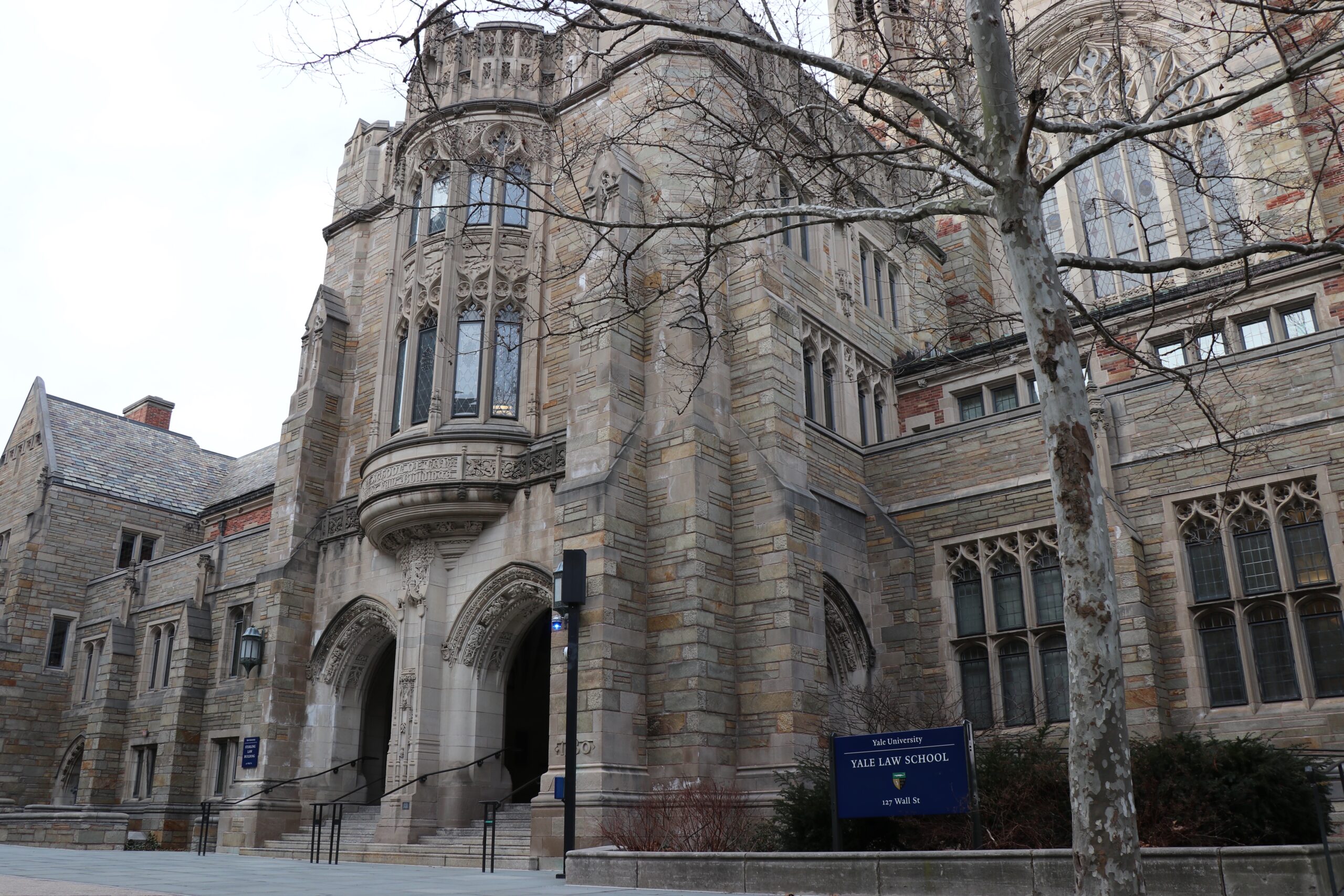The Budget Lab at Yale brings new models and analysis to topical economic debates
The Lab aims to develop economic models that better incorporate the long-term impacts of fiscal policy.

Christina Lee, Head Photography Editor
The Budget Lab at Yale aims to address gaps in current economic analysis.
Founded last year by three former members of the Biden administration — Yale Law School professor Natasha Sarin ’11, University of California, Berkeley economics professor Danny Yagan and former senior White House economic advisor Martha Gimbel — the Budget Lab at Yale is a nonpartisan policy research center that develops economic models that reveal the unexamined effects of fiscal policies and regulations.
“We view ourselves as a public good of sorts,” said John Ricco, the lab’s associate director of policy analysis. “We try to give timely information on proposals that are in the news or legislation that’s being talked about.”
The idea for the Budget Lab developed out of the experiences of Yagan, Sarin and Gimbel — now the lab’s chief economist, president and executive director — while serving in the Biden administration, all working on fiscal policy.
According to Sarin, the lab’s mission is to address gaps in policy impact analysis, offering a “more holistic picture” of why we invest in certain areas of the economy.
One example of a policy whose benefits the lab views as not being accurately represented by traditional economic models is the Child Tax Credit, or CTC.
According to Sarin, the government often views this spending as “dollars out the door.” However, the long-term benefits of programs such as the CTC, the lab believes, are often not accurately reflected in current cost-benefit analysis.
“When you invest in [children], they have better later life outcomes,” said Sarin. “They are more likely to stay in school. They’re more likely to be in the workforce. Their parents have better health outcomes … Those sorts of benefits, in traditional models, we don’t account for in any real way.”
She noted that the center hopes to develop new methods of economic analysis, incorporating different approaches to quantify how policy impacts people’s lives and thereby, predict its full effects. Recent projects at the lab include analysis of reform options for the CTC and the Tax Cuts and Jobs Act.
Ricco said that Lab does take requests for economic analysis from political actors, including members of Congress and presidential campaigns, as well as state and local policymakers. The Lab will run its models on the policy and provide its findings without any fee.
Sarin said that the Lab also hopes to “democratiz[e]” fiscal analysis, allowing actors independent from the government — including news organizations and academics — to become involved in developing economic models and evaluating fiscal policies.
“What we want to have is a translation between inside and outside groups who think of these [policy] questions,” Sarin said.
The Budget Lab itself is a non-partisan organization and refrains from offering any direct recommendations on fiscal policies or reforms. Ricco told the News that the Lab would never comment on where a policy is “good” or “bad,” but is instead uniquely focused on predicting the effects of a policy.
He added that transparency is a “core value” of the center, noting that the code and calculations used for their models are publicly available online.
The lab, however, is not fully open source. Although users can download the code, its models — and their accuracy — are dependent on the data taken from anonymized tax returns purchased by the lab from the IRS.
The organization is unable to release that information and a user would have to purchase the data themselves in order to successfully run the code. Ricco noted that the alternative — relying on public-use data — can lead to data quality issues.
The lab is run by a team of only ten full-time employees, in addition to research assistants. Ricco told the News that keeping up with the fast-paced and vast world of politics and economic policy has been a challenge for the team.
“Things move really quickly in the policy/political world,” said Ricco. “Prior to the end of June, we did not anticipate that there would be a lot of like policy in the presidential debates and campaigns.”
He explained that since the beginning of the summer, the focus of the political conversation has shifted, resulting in questions regarding how to best allocate the organization’s limited resources and staff.
During the spring semester last year, Annabelle Xing ’25 worked at the Budget Lab as a research assistant. She noted that although the organization’s focus on topical policies posed the greatest challenge during her time with the Lab and was also the “biggest reward.”
Thomas Triedman ’25 — who also worked as a research assistant — echoed Xing’s enthusiasm for the work.
“It’s just exhilarating to be part of the organization that’s really getting off the ground and that has real impacts,” Triedman said.
The Budget Lab was founded in July 2023.







